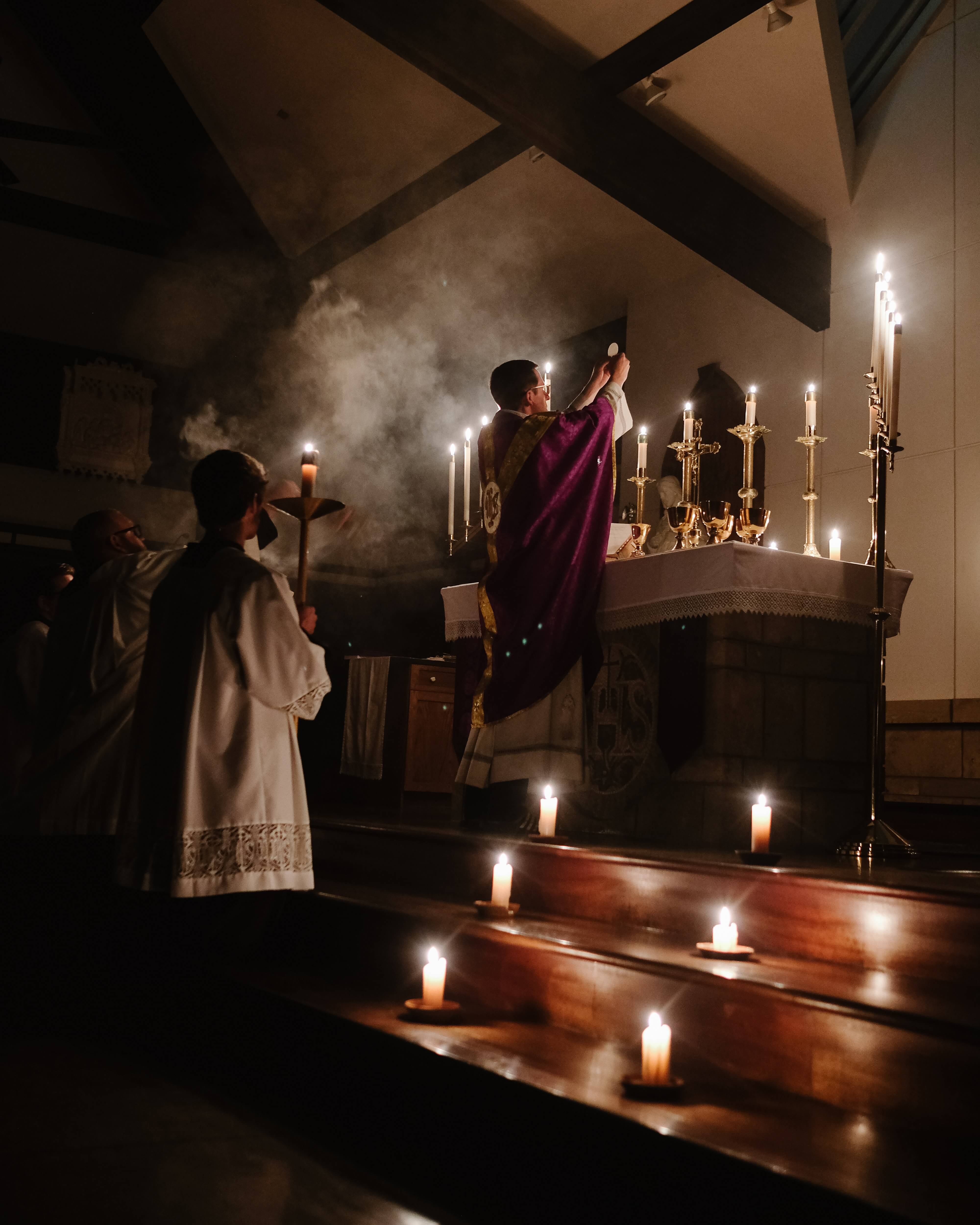In the consideration of the Sabbath and its supposed change, we have now reached an important point. The change of the Sabbath is the result of one of the deepest plans ever conceived by Satan. He knows the importance of the Sabbath as it directs the minds of men to God thus he has cunningly sought to remove the sign between God and his people (Ezekiel 20:12) and substitute a secular day that has not been ordained by God. Since we have found that neither Christ nor His disciples changed the Sabbath day, and that the Bible does not record any change, we will have to look to history for the change of the Sabbath.
The Great Apostasy
From our previous studies, we have seen how the Sabbath can be traced all the way from Eden to the time of Christ, down to the apostles and the early church; they all observed the seventh day Sabbath. But the scriptures foretold of a departure from the truth. The apostle Paul declared that the day of Christ should not come "except there come a falling away first, and that man of sin be revealed, the son of perdition; who opposeth and exalteth himself above all that is called God, or that is worshiped; so that he as God sitteth in the temple of God, showing himself that he is God." And furthermore, the apostle warns his brethren that "the mystery of iniquity doth already work." 2 Thessalonians 2:3, 4, 7. Even at that early date he saw errors creeping into the church that would result in development of the anti-Christ. The change of the Sabbath did not occur at once; it was a gradual process that took centuries to be finalized.
As the defenders of the gospel laid down their lives for the truth, there arose false teachers in the church who corrupted the pure doctrine (Acts 20:29,30; 2 Peter 2:1). Their errors were slowly introduced, first silently then as they gained prominence they became more open. The customs of the heathen were coming into the church and there was a mixture of truth and error. Those who stood for the truth and opposed the incoming errors were persecuted and martyred. In order to avoid persecution, a great number compromised the distinguishing features of their faith and the door was now open for paganism to enter into Christendom.
The devil having gained access into the church through paganism, worked with mysterious secrecy to exalt himself and make of none effect the holy Law of Jehovah. The newly converted pagans had not forsaken their idols, thus they brought them into the church and presumptuously the second commandment which forbids idolatry was done away with. This was a preparation for further disregard of heaven's authority. Satan was still working to remove the great memorial of creation, to change the Sabbath from the seventh day (Saturday) which God had blessed and in its stead exalt the heathen day of worship, the venerable day of the sun, Sunday.
Sunday Observance
As stated earlier, the attempted change was gradual. That the attention of the people might be directed towards Sunday, it was made a day of festival in honor of the resurrection of Christ. The Sabbath was not neglected; it was still observed concurrently with the first day. The Western church then began to fast on Saturday to show their hatred of Judaism. This made the Sabbath to be a day of sadness and gloom. Fasting is never popular, and of course, seeing the Sunday was made as joyful a day as possible, the Sabbath was disliked.
In the early part of the fourth century the emperor Constantine issued a decree making Sunday a public festival throughout the Roman Empire. The day of the sun was reverenced by his pagan subjects and was honored by Christians; it was the emperor's policy to unite the conflicting interests of heathenism and Christianity. He was urged to do this by the bishops of the church, who, inspired by ambition and thirst for power, perceived that if the same day was observed by both Christians and heathen, it would promote the nominal acceptance of Christianity by pagans and thus advance the power and glory of the church. But while many God-fearing Christians were gradually led to regard Sunday as possessing a degree of sacredness, they still held the true Sabbath as the holy of the Lord and observed it in obedience to the fourth commandment. *
The devil was not yet done, various councils were held from time to time and decrees were passed which trampled on the hallowed Sabbath and exalted the first day, Sunday. Notable among them is the council of Laodicea (AD 364) which stated that "That members of the church should not rest from work on the Sabbath-day (Saturday) like the Jews, but should labor on that day, and preferring in honor the Lord's day (which according to them is, Sunday); then, if it be in their power, should rest from work as Christians" ** Thus Sunday was honored as a divine institution and the Bible Sabbath was regarded as a Jewish institution. All this did not happen by chance. It was a fulfillment of prophecy. The Lord through the prophet Daniel, had foretold of a power that "would think to change times and laws" Dan 7:25. Who is this power that dares to change the laws of God? This is a question that requires much consideration, and due to the weight it bears I invite you to join me in the next study as we unravel this power styled as the little horn.
From what we have seen above, Sunday bears no divine credentials whatsoever. Protestants may claim to worship God on Sunday due to the resurrection event, but biblical proof is lacking. Where friends in the Bible are we instructed to observe Sunday as Sabbath? We dishonor God by not obeying His Sabbath commandment. Sunday sacredness is a result of the traditions of men. Judge for yourselves is it right to honor the traditions of men above the law of God? To observe a day that we have no biblical reason to observe? In so doing we are paying allegiance to that man of sin, who boastfully claims to have changed the day of worship. Join me in the next discourse as we get to behold this man of sin, the Son of perdition, the little horn, who has thought to change times and laws, yea even the law of God.
*Great Controversy pp 53.1
**Sermons on the Sacrament and the Sabbath, pp. 122, 123


 Good Nutrition (Part 2)
Good Nutrition (Part 2)
